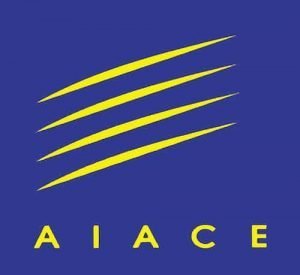The opportunity to secure an EU pension is an underappreciated, but a very significant benefit of working for the EU institutions: European Commission, European Parliament, European Council or any of the 40+ EU agencies and several other EU institutions.
The EU pension is a defined benefits/final salary scheme that guarantees you an inflation-adjusted monthly income until your death. Additionally, after you pass away, your surviving spouse will continue to receive a survivor’s pension until her/his death that is a significant part of the pension you were entitled to.
While all of the information below is from public sources, it is often hard to access and understand due to “legalese” and the the sheer size of the documents. This article outlines the main facts about ‘EU pensions’ in an easy to understand manner.
How to qualify for a European Commission pension?
Anyone who works for the European Commission, European Parliament, an EU agency or another EU institution, is entitled to an EU pension after 10 years of service. You have to accumulate your 10 years before you reach either the mandatory pension age (66 years in 2021) or early-retirement age (58 years in 2021).
You can work for different EU institutions at different times in your life. All of your employment periods in EU institutions will be summed up and count towards a 10-year minimum as long as you do not withdraw the accumulated pension capital to a private pension scheme.
The pension contribution (tax) is the largest deduction of one’s salary. 9.7% is automatically deducted from your salary each month to accumulate the pension capital, and no actions need to be taken by you.
What is the mandatory European Commission pension age?
The mandatory pension age is 66, at which you will be able to receive the full amount of pension that you are entitled. It is possible to work until 70 if it is exceptionally justified. After reaching 70 a person is retired automatically and there is no possibility to remain in employment of EU institutions.
How large is a pension after working for EU institutions?
There is a minimum pension for former EU officials. It cannot be less then 40% of the basic salary for an EU official in the AST 1 (step 1) category. In 2023 this amounts to EUR 1331.00 (salary for AST 1 EUR 3327,49 * 10 years of service * 4%).
European Commission Staff Regulations
Your pension after the 10 mandatory years of service cannot be less than the minimum pension for EU officials – see above. If you are interested in more detail, the answer depends on a number of factors:
- Length of service. For each year of employment a person is entitled to 1,80% of the final basic salary. For example, if you have worked for EU institutions for 10 years, you will be entitled to 18% of your final basic salary; 20 years will qualify you for 36%; 30 years – 54%; 40 years – 72% (which will be capped at 70%).
- Basic salary in last employment position. Your pension will be calculated as a percentage of the basic salary.
- Pensions are adjusted to the actual cost of living in the European Union and should slightly increase over time.
- The final pension amount may not exceed 70 % of the final basic salary.
If you have worked for several EU institutions, your pension will be calculated based on the last basic salary you received.
In practice, if you are an AD5 in Brussels at the end of your career with a basic salary of 4883, you would be entitled to the following amounts proportionally to the time worked for the EU:
- 10 years = EUR 4883 basic monthly salary X 1.8% X 10 years = EUR 878.94. In this case you would instead receive the European Commission’s minimum pension of EUR 1200.24.
- 20 years = EUR 1757.88
- 30 years = EUR 2636.82
- 40 years = EUR 3515.76
Of course, if you start as an AD 5, your final basic salary would actually be higher as you would advance through the steps of the pay scale every two years. The above calculation is meant to just be an illustration of the principle.
Pensions and the Correction Coefficient
The European Commission Correction Coefficient is not applied to pensions (Article 82 of Staff Regulations). In practice this means that you will receive the same pension independent of where you live after retirement.
Can I retire early? What are the consequences?
The early retiretirement age is 58 years (in 2021).
An early retirement pension amount is reduced 3,5% for every year before mandatory pension age of 66. Hence, if you decide to retire at 58, you will incur a 28% reduction of your pension. Unfortunately, the pension will not increase once you reach the regular retirement age.
Can the EU pension be inherited by a surviving spouse and/or dependent children?
Yes. The surviving spouse of a former EU official is entitled to 60% of the pension paid to the official. The amount that can be inherited by dependent children varies on the individual situation and the ‘orphan’s pension’ can only be precisely calculated by the Paymaster’s Office.
EXAMPLE
If you are entitled to the minimum European Commission pension of EUR 1200.24 (100%)
THEN
your surviving spouse will receive up to EUR 720.14 (up to 60% of former official’s pension) until her/his end of life.
Divorced spouses are also entitled to a survivor’s pension if they can prove that the (former) EU official was supporting them based on a court order or an officially registered settlement in force between both parties.
If you are in such a situation, please contact either the European Commission’s Paymasters Office or the HR Department of the last institution your spouse was working for in order to find out the steps to take.
Very important – unless there are proven force majeure factors, the survivors pension has to be requested within one year of the former EU official’s death. Otherwise, the spouse’s and dependents’ rights are forfeited.
Does my EU pension capital accrue interest while I’m waiting for my pension age?
Yes. The accumulated pension amount accrues compound interest at a rate of 2.9% per year (in 2021).
What if I leave an EU job before I accumulate 10 years of service?
For most people the best strategy is to leave your pension capital with the European Commission Paymaster’s office as it accrues a 2.9% per annum in interest. You can accumulate your 10 years in EU institutions over an unlimited number of instances of working for EU institutions until the mandatory retirement age of 66.
Some institutions strongly encourage the “transfer out” of the accumulated EU pension capital claiming that it might be “very hard” to do it at a later date. However, there is no particular difference in the amount of work for you whether you decide to move your EU pension capital to a third tier pension management fund right after leaving an EU institution or much later. The only caveat – you pension capital left with the EU Paymasters Office will be completely lost if you happen to die before reaching your pension age. And, of course, don’t forget about your pension capital once your retirement age comes and you have not accumulated the necessary 10 years to qualify for an EU pension.
If you decide that you never again want to work for the EU, you can “transfer out” your pension capital to any of the European Commission-approved pension management schemes in all EU member states. The funds will only become available to you once you reach the age of 60.
Reasons to “transfer out” your accumulated EU pension capital:
* You do not plan to ever again work for EU institutions
* You are certain that you will be able to invest your EU pension capital in an investment vehicle that returns substantially more than 2.9% per annum
* You are worried that you might die before retirement age (chronic disease, family health history, dangerous hobby, etc.)
Once you “transfer out” but again start working for a EU institution, you will be able to transfer in your accumulated pension capital, but not the accumulated ‘pension years’ to qualify you for an EU pension. So – choose carefully.
Not only an EU pension, but also health insurance for you and your spouse
After an EU official becomes entitled to an EU pension, the person and his/her spouse and any dependents also become entitled to the JSIS – the European Commission healthcare insurance scheme. It reimburses between 80-85% of most healthcare costs. If you have what are considered serious illnesses you can obtain a 100% reimbursement. This should be a major appeal for people in retirement.
If there are any dependents, the retiree is also entitled to the relevant allowances such as the household allowance and dependent child allowance.
Where to get consultations and help regarding European Commission pensions?
Former employees of EU institutions are usually advised to contact the HR department of the last institution they were employed by.
It is also possible to get in touch with Office for the Administration and Payment of Individual Entitlements also know as the Paymasters Office (PMO), contacts here. If you have questions about JSIS, the European Commission health insurance scheme, including coverage of funeral expenses, you can find the relevant Paymasters Office contacts here.
AIACE – International Association of Former Staff of the European Union

When you retire from an EU institution, consider becoming a member of AIACE. For the 40€ annual fee (differs by location of national units) you can get a number of benefits:
- Access to a helpdesk (consultations on key retiree issues). Virtual and in-person consultations in Brussels
- Legal assistance at a reduced fee
- Special complimentary insurance availability to complement risks not covered by the JSIS (currently offered by Cigna)
- Accident coverage
- Coverage of the difference in all medical costs and those reimbursed by the JSIS
- A monthly Cigna consultation
- Quarterly VOX bulletin sent to all of the retired staff. National bulletins sent to members of country chapters
- Yammer chat
- Voluntary work opportunities and possibility to received help from other volunteers; social contacts and events
Main facts about AIACE:
- AIACE has special Partnership Agreements with the European Commission, the European Parliament, the European Court of Justice, the European Social and Economic Committee, the Committee of the Regions, the Court of Auditors, and the Council. All the above institutions recognize AIACE as the representative of their retired staff
- Founded June 1969, AIACE has over 12000 members out of a total approximately 23500 retired staff
- 15 national branches (20 retirees can form a national branch)
- AIACE lobbies on behalf of retired EU officials and defends their rights at the European Commission and other EU institutions. AIACE is even an official member of a number of working groups that affected the interests of former EU administrative agents and contract agents
AIACE contact details:
- Website: www.aiace-europa.eu/
- Address: N105 00/23, 105 Avenue des Nerviens 00/036, Brussels, 1040, Belgium
- Telelphone: (Belgium): 02.2952960
- Email: aiace-int@ec.europa.eu
Frequently Asked Questions
EU officials have their own pension scheme, managed by the European Commission. This pension scheme serves the former statutory staff of the European Commission, European Parliament, European Council, the 40+ EU agencies and all other EU institutions.
The minimum pension for EU officials cannot be less than 40% of the basic salary for an EU official in the Assistant grade AST 1 step 1 category. In 2023 this amounts to EUR 1331.00 (salary for AST 1 EUR 3327,49 * 10 years of service * 4%).
Yes, pensions of former EU officials are regularly adjusted to inflation the same way as salaries of Administrators, Assistants and Contract Agents. As an example, the minimum EU pension in 2021 was around 1200 euros, but rose to 1311 euros in 2023 as salaries of EU officials also increased.
Mandatory pension age for EU officials is 66. EU officials can retire early from the age of 58, but they take a permanent decrease of their pension for every year of early retirement. Pension of an early retiree does not increase once the person reaches age 66.
Do you still have questions regarding EU pensions?
As usual, if there is an unanswered question or you have spotted a mistake, please write a comments and me and the EUE community will do our best to help and update the article.
This article is based on the European Commission Staff Regulations and other publicly available information such as EU institutions’ vacancy announcements.








130 responses to “Pensions for Staff of European Commission and other EU institutions”
Hello, I receive 100% of an orphan’s pension. But I would like to start a company. I live in Germany and would therefore like to set up a limited liability company (UG). As this is a legal entity in Germany, I would like to know whether orphan’s pension recipients are allowed to set up a UG. As the sole shareholder, I would then only be paid out as much as I am allowed to receive each month (1200€) before tax (based on my current pension) and leave the rest in the UG. Am I allowed to do that? As far as I know, assets are irrelevant when it comes to paying out the pension. And the UG would be an asset in this case.
Because it is such a special case, it is incredibly difficult to find information about it.
Tax or business consultants here in Germany do not know anything about orphan pensions. And the pension office does not know anything about German law. I am so desperate. I have also asked the EU several times, but I never get a proper answer or sometimes I am told yes, sometimes no.
I am so desperate that I would even pay money if someone could help me.
Dear Ben,
I am Dutch and have been working in The Hague under the EU Commission for 6 years and have built up an EU Comm Pension over these years.
I am in the process to have my EU Comm. Pension transferred out but
I was informed by my Pension provider that once finalized the monthly payments that I will receive could be taxed with 19, 37 or even 49% depending on my personal situation.
Now here is my question on which I have not been able to get an answer until now:
I seem to remember, but I am not 100% sure of this, that the contributions that I made to the EU Comm. Pension fund on a monthly basis were already taxed and there for would be exempt from additional taxes ones used for a monthly pension.
Do you know if this is correct or not?
Thanks in advance and kind regards,
Max Schmits
Hi! Indeed, according to EU law, the pensions should not be taxed just like your EU income. However, there are a number of EU Member States that tax not only pensions, but also try to tax salaries of staff of EU institutions.
I can suggest several courses of action if you really decide to transfer out (i.e., you’re certain that you won’t collect additional 4 years in institutions to get the EU pension):
* transfer the funds to a 3rd tier pension fund in a different EU member state where you are certain that the payouts are not taxed.
* try to find a group of your nationals that have the same problem and consider litigate together. Here AIACE, the former EU civil servants’ union, could be of help with contacts and possibly also advice.
If possible, please let me know what action you decide to take and how it plays out! Also – consider joining our new Facebook group (https://www.facebook.com/groups/jobs.in.eu.institutions). While it’s small, it has a health growth and there might be people in a similar situation who can share their info and expertise.
Dear Ben,
I already bothered you on the forum on unemploymen benefits, and since your answer was extremely clear here I am again, and always thanks for the patience!
My question in three parts:
1- just to be extra sure: having worked only 6 years for the EC they cannot force me to transfer out my pension rights, correct? At least, for as long as I am not old enough to retire..
2- I think I read in one of the answers that when you reach a certzain age (55 or 58, not sure..) you can ask the PMO for the whole lump sum corresponding to your pension rights from the EC, is this true?
3- I heard a lot of rumours about a time limit for the transfer out depending on the country: for example, according to the trade unionist at my last Ec working place, in the case of Portugal you only have six months after end of contract! Do you know anything about this type of country-dependant time limit, particularly in the case of Belgium?
Thank you so much, there should be a statue of you in Berlaymont…
1. I’ve heard many stories about colleagues being “forced” to ‘transfer out’. However, I’m not aware of any legal basis that would allow forcing people to leave the EU pension system. I personally would just ignore such requests if I had a plan to collect the minimum 10 years of employment in EU institutions or wasn’t sure that a 3rd tier private pension fund would to a better job than PMO.
2. One can access the pension capital at the age of 55 if you have ‘transferred out’ your pension capital to a private third tier pension fund. If your pension capital is still with the PMO, then it’s my understanding that you can only request an early retirement from age 58 and a correspondingly decreased pension for each year of early retirement before age 66.
3. I’ve attended several PMO pension seminars. It’s always shared there that transferring out can be done at any time until reaching the pension age.If something has changed, it’s a very recent change in this case.